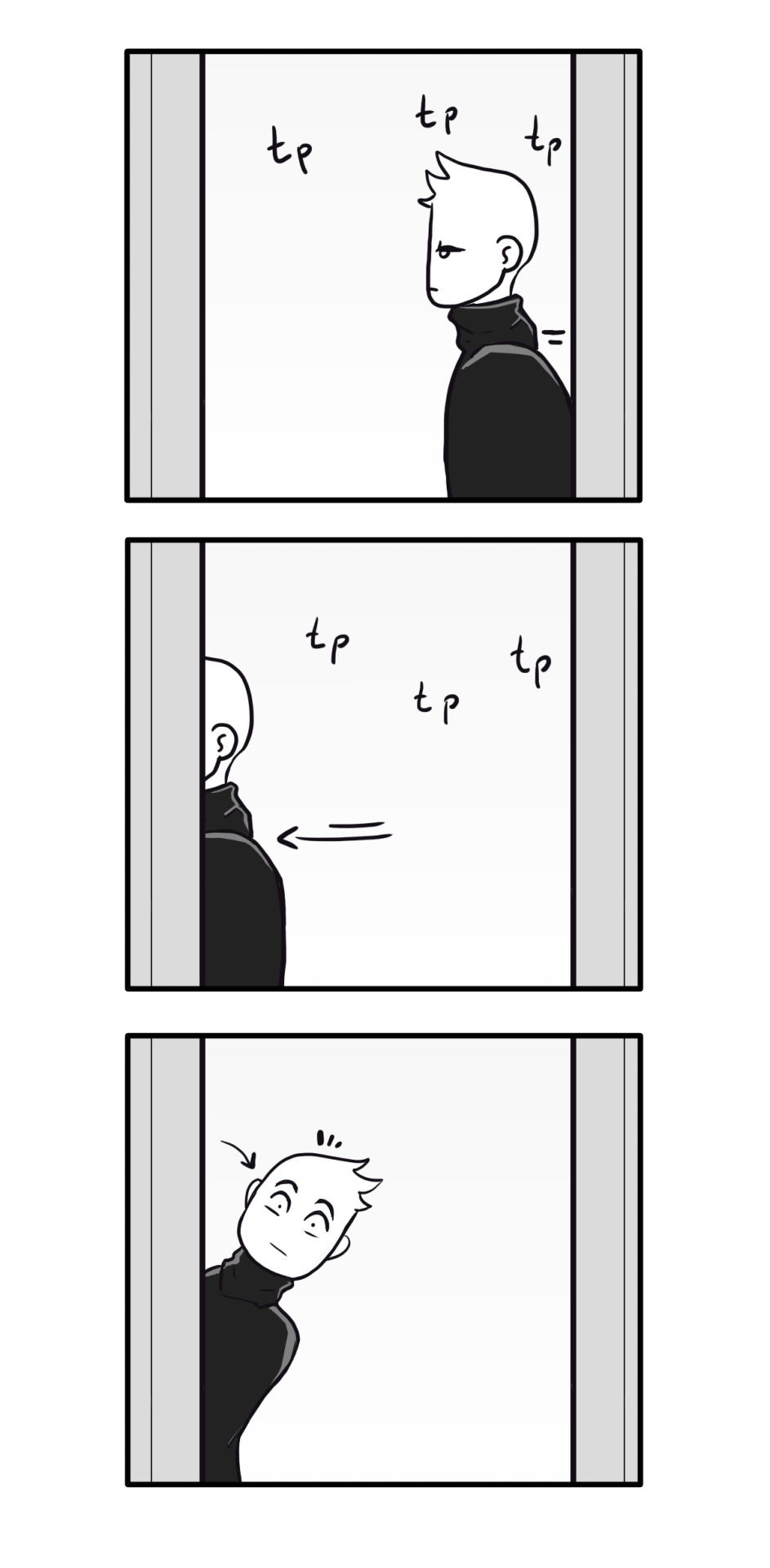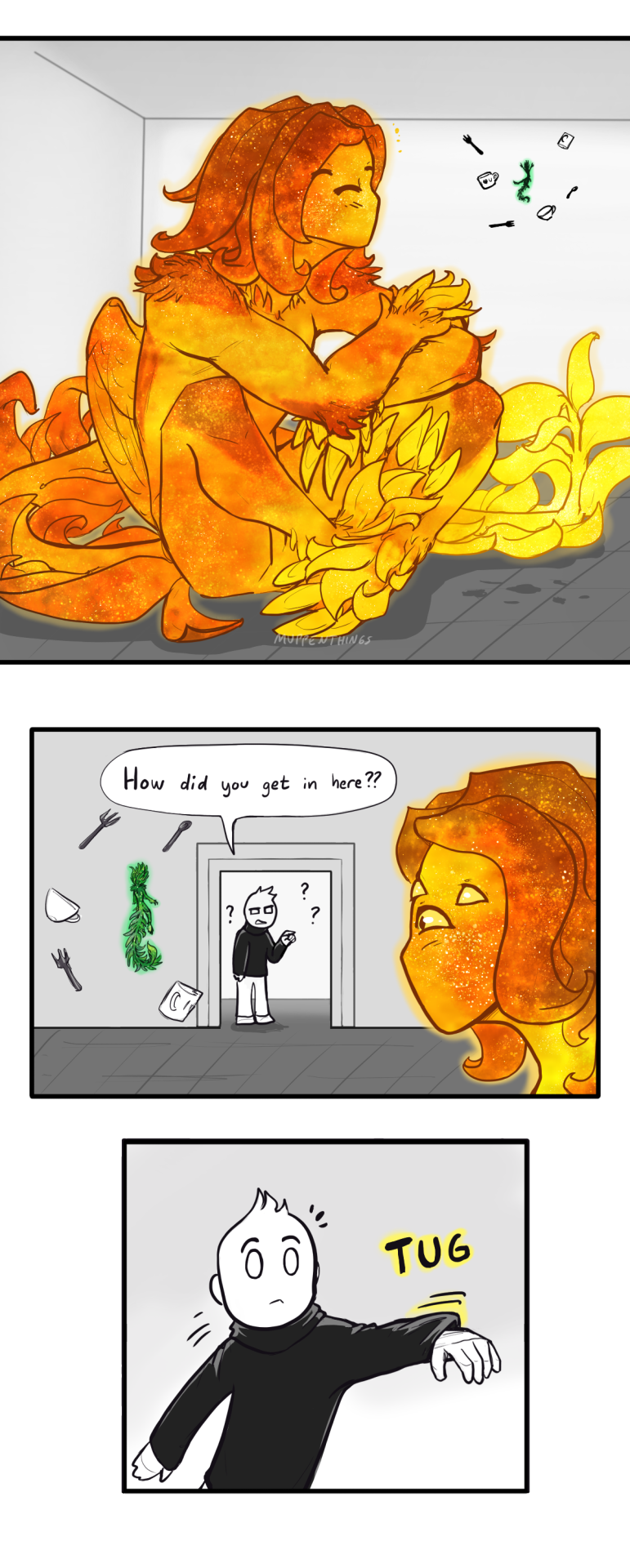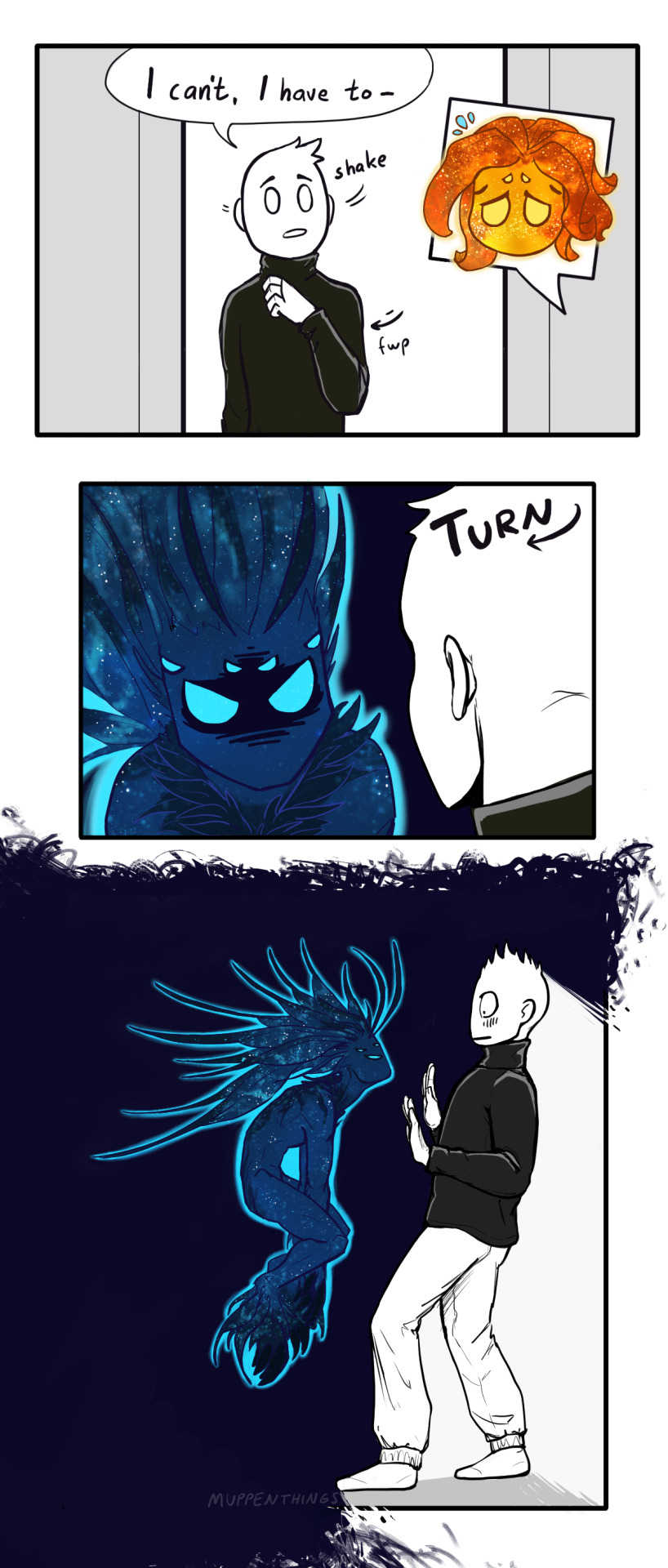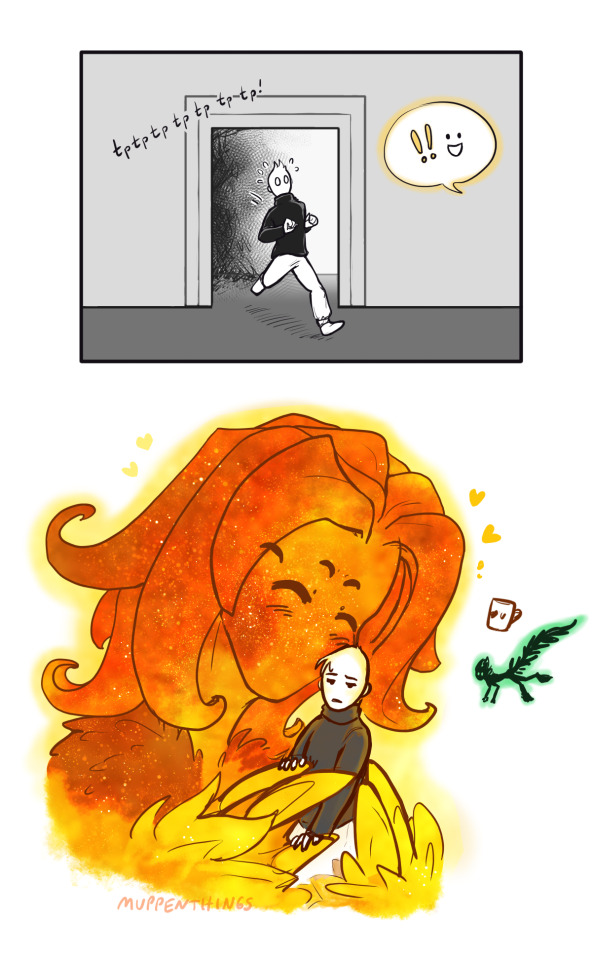#tradeoffs
Explore tagged Tumblr posts
Text
The drizzle ain’t too bad, but looking a bit too jellyfishy for me today. The ducks don’t seem to mind, tho




#water#sea#drizzle#jellyfish#brandmand#ducks#fearless ducks#fear#tradeoffs#priorities#acceptance#brandmanden#rocks#trees
2 notes
·
View notes
Text
The flipside of course is that if you're not having fun anymore, then you don't have to stay. Knowing when to tap out is a skill.
And as the fandom gets smaller, the absolute number of that 5% awful faction decreases and it gets easier to avoid them. (Though it gets harder to find content for your specific less popular niche.)
Fandom is so different now and it’s becoming un-fun with how quickly shit moves.
I just want to enjoy things. I don’t want to have to play a game of Artist-Race that seems to be afoot lately.
Ya’ll eat up fandoms, leave artists and writers bone dry and then move on so fucking quickly then fucking wonder where all the Good Fandom Stuff is.
Idk Maybe cherish some things for longer. Reblog stuff. Interact with people. Comment and share.
Fandom is Capitalism now and I’m not being nuanced.
#tradeoffs#mostly it's about finding the other people still into it#keeping the old posts circulating#injecting fresh ones periodically#and importantly you have to welcome the transient travelers too#otherwise you'll get a reputation for being old and crotchety#but if you welcome the people for whom it is a fleeting interest#then you get fresh new angles and gifs and fics a lot more often but with less consistency#i love the endless circle of fandom
125K notes
·
View notes
Text
The S-Pen update on the S25 Ultra - It's the magnets
The latest in the Galaxy Ultra series trades off advanced stylus capabilities like remote camera shutter in favour of faster wireless charging.
Looks like the S-Pen is losing the air gestures and Bluetooth capabilities that allow it to act as a remote camera shutter on the latest Samsung Galaxy S25 Ultra. I suspect it is due to the requirement of magnets in the new Qi2 wireless charging feature that’s being added. The earlier editions of the Ultra series used to have stylus detection issues with magnet based accessories (like this…
0 notes
Link
“Two-dimensional tradeoffs always disappoint someone. You can usually make a tradeoff that doesn’t disappoint anyone by introducing a new dimension.” I love this attempt to put words to something so intangible. Seeing the right dimension to introduce is underappreciated. The dimension seems obvious in hindsight, and it solves problems before they happen. But make no mistake, it is a superpower.
0 notes
Text
Listen to: 92,000 Transgender People Took This Survey. Here's What We Learned
Listen to: 92,000 Transgender People Took This Survey. Here's What We Learned - https://one.npr.org/i/1244043587:1244043589
#npr news#american news#news#health news#transgender health#transgender rights#survey results#survey research#health#healthcare#tradeoffs
0 notes
Text
How am I supposed to get any work done with a face like this staring at me?

1 note
·
View note
Text
Diesel Motorcycles Exist: Exploring Innovation on Two Wheels
https://gob.stayingalive.in/revving-up-knowledge-unveil/diesel-motorcycles-exist.html In the vast world of motorcycles, innovation often takes center stage, driving enthusiasts to seek out new technologies and designs that push the boundaries of what’s possible. One such innovation that has sparked both curiosity and debate is the existence of diesel motorcycles. Yes, you read that right –…

View On WordPress
#Challenges#Diesel motorcycles#Efficiency#energy#Engineering innovation#Environmental responsibility#Future of riding#history#Innovation on two wheels#Motorcycles#News#Performance#Sanjay K Mohindroo#Sanjay Kumar Mohindroo#Sanjay Mohindroo#Sustainable riding#technology#Tradeoffs
1 note
·
View note
Text
i may have time travelers affliction but at least i also have futurebrain
#futurebrain told me to hang on to these pants i quit wearing so i did and guess what#i want them now#i don’t like what i was doing to make them less boring but i have better ideas now#starting w wearing them plain and seeing#how that is#if i don’t like it then back to the drawing board#you can’t get futurebrain without time travelers affliction though#tradeoffs#i have both from something. related but one isn’t the cause of the other#in my case
1 note
·
View note
Text
Holy shit
by tradition, the first day of the camp was spent pranking the group next to us. our prank was ziptying the zippers on their sleeping bags together. we figured one of them would sleep with a knife, because we all slept with knives, because we were dangerous maniacs and half the danger of a dangerous maniac is that they tend to think that they are Actually Normal. so. obviously that didn't pan out, and instead they got stuck in their sleeping bags for like half an hour and because their scoutmaster slept in their car and couldn't hear them yelling, they actually only got out when one of them went full caged animal and chewed through the plastic. which meant they had time to make it to the axe throwing station, but they did miss breakfast.
the scale of our victory was impossible to understate. it was an epic prank. unrivaled. the best in years. we knew they were going to retaliate, and we both feared and craved it. maybe i'm still a maniac, but that feels like a common thing, right? do well adjusted people that are not maniacs crave Judgement?
(serious answers only please, from people who would never spoon a knife.)
anyway, the next day we got back to our camp, and the neighors had skipped dinner to just come back and fill all our tents with pinecones. which was like, a decent prank, i guess, but it probably took them an hour to fill all the tents up, and it took us like 15 minutes to tip the tents out, and as a return volley to the ziptie prank it was incredibly underwhelming. we felt a little cheated.
so our scouting group held a council, and we agreed, unanimously, that our prank was 100% better and theirs sucked and that there would be no escalating tensions because we were the clear victors. they'd had their chance to retaliate, and they failed, and so the war was over. that was it.
we agreed on this. we swore. but madness is a relative thing, and in our group of maniacs, we still had J. i have many, many J stories. too many. i biked up to school with him from 4th grade to 8th, and i saw him get hit by cars thrice. he'd just swerve into the road sometimes. one time on a rainy day in 4th grade, a car splashed me, and before i could even consider my response J yelled I GOT THIS and then he blitzed off after the car. i didn't see him the rest of the day. i was so anxious i barely slept that night. i saw him the next morning and he told me that he'd chased the car until it got to a gated community and then he'd climbed over the fence and looked in peoples garages until he found the one with the car, and then he'd ripped the hood ornament off and broke their window. then he gave me a hood ornament to a different brand of car from the one that splashed me and i didnt tell him because i didnt want him missing more school. i want you to mentally adjust your mental model of the things a 9 year old is capable of doing to include chasing a car for five miles, hopping a fence, breaking into a garage, and vandalizing a randos car.
and that's just the tip of my J stories iceberg.
the point of all this is just to say that J was so crazy that he made us knife spooners look like accountanting enthusiasts.
so we agreed the war was done, and we shook on it, and then J, in the name of friendship, in the name of honor, in the name of avenging our pinecone filled tents, snuck over to their camp that evening and fornicated with a watermelon that they'd been saving in their cooler.
i want to emphasize, again, that this was not the consensus of the group. that is not a prank. like i know it seems like we dont know what pranks are because of the whole ziptie thing, but even we knew that fucking someones food is not a prank, it is a crime, and a sin, the kind of weapon that had only been ethically used once in history by Horus in his battle against Set and none of us dumb assholes had owl heads.
so.
the next day went pretty well. we threw some more axes again, which is a valuable and important skill for children to learn i guess, and we learned how to tie knots, which is a skill that turned out to be far sexier than i ever expected, and i learned how to light fires with a magnifying glass, which was great. i'm looking back at this, and i am actually just now beginning to realize that the clear and obvious point of scouting is turning child sociopaths into apex predators.
and then the day ended, and we went back to our camps, except for our leaders, who had a sort of Scout Leader Meeting they were going to have for a few hours at least. it was built into the camp, that day was supposed to be our day to chill as a group, and make peach cobbler, and just be buddies.
except, as it turned out, our neighboring group's alternative to making peach cobbler was eating their watermelon. so at some point they opened their watermelon, and woo boy. oh man. you think catholics hated seedless watermelons? you should see how much mormons hate seeded ones.
so we were chilling by the fire, and then we heard screaming from the camp over, but we didn't pay much mind to that because there are many reasonable explanations for a group of 10ish children to scream simulanteoulsy, such as wasps, which are abundant in arizona, and then the screaming got closer, which did not bother us because there were many reasons for a group 10ish children to scream and run towards us, for example, wasps, which are abundant in arizona, and then we noticed they had large sticks on them, which we figured were perhaps being used to drive away the wasps, which are abundant in arizona, and then they arrived and they started beating the shit out of us, abundantly, in arizona.
so we ran into the woods.
now, at this point, we had no idea what was up. we knew that the camp next to us was out for blood, which was crazy, because we'd actually locked them in fartproof bags for 30 minutes and they'd barely done anything back, and were trying to figure out what could possibly have happened that could drive them to Terrible Violence when we realized that J was cackling like a witch that had learned how to order children off of ebay.
so we politely asked J what the hell he had done, and he politely explained that had "done" their watermelon, and we politely beat him with large sticks because life is nothing but endless cycles of violence.
we were still being chased by the other camp btw. so it was them, chasing us, chasing J, and then they got tired and went back to their camp, and we chased J a little longer because we were mad we'd all been walloped with sticks, and J did not care because he was a supernatural entity whose only weaknesses were Needles and Fire, and then we got tired and went back and J kept running, and we just kind of figured he would come back eventually.
he did not.
we went back to our tents, and we waited, and J did not come back. we stayed up all night, peering into the forest, worrying. our leader came back, and we did our best to hide our battlewounds, and he either genuinely did not notice or simply accepted this as part of Boyhood. then he went to bed, and we waited, and waited, and waited. And Waited. and did not sleep.
eventually, we convened again, and we agreed that if J was not back by after breakfast, we would have to tell the scoutleader about what exactly had transpired. and we really did not want to do that, because it would have meant that everyone would have gotten in a very large amount of trouble.
morning came around, and J still was not back. we went to breakfast, and we ate very, very slowly. we were afraid the other camp was going to continue their war with us, but they actually looked fairly frightened. one of them actually came to us and asked for a truce, and we agreed because we truly felt bad for them. like, yes, they did beat us with sticks, but J fucked their watermelon. we werent complicit in the watermelonfuckening but they didnt know that, and it was definitely the kind of crime that left one outside the bounds of the social contract.
and then when we could eat no more bits, when breakfast was almost done, right when i was getting pushed to go and tell the scoutleader that we needed to find J, he arrived. he was sleep deprived, and noticeably scraped and bloody, and tied to his belt was a blood squirrel tail.
and i asked him, J, where did you get that? and he said, don't worry man, it was already dead, which did not answer by question and gave me several more.
the camp ended that day, and the other groups avoided us like the plague, and it was not until some weeks later that we were able to piece together what happened.
J, in his sojourn through the forest, managed to find (or, possibly, make) a dead squirrel. he then cut off the tail to keep on his belt, because he was a weird little freak like that. he also took the dead squirrel, and he skinned it, then he tied it to a little crucifix made of wood, and he left it in the other scouting group's camp. which is why they were so scared of us.
it was such an unhinged thing to do it actually sobered us up for a while. scouting became a scary thing for us. we'd found something dark and primal there, in the place where no adult could see, and our appreciation of J as a wild ride kind of changed into seeing him as something truly dangerous. we had a sense wherever he went, something terrible would follow, and the only way to escape it was to not be there when it arrived. and so piece by piece, the scout group dissolved. it wasnt until he moved out of that ward that the rest of us started daring to go back to scouts.
and for the final epilogue of the tale:
i have a little brother who was friends with a younger cousin of J's, and the two would go to parties together in highschool. and sometimes J, who was in his early 20's at that point, would show up at the parties, and it was unsettling in such a way that it just became a known risk at parties with the cousin. and at one party, they were playing truth or dare, and J wasn't even in the room, but someone asked him the Truth of how he always knew how to find the cousin, and J said the cousin's mom had mentioned she was worried about him and the parties so he'd put a tracker in his car. and when he saw that the cousin was out of the house on weekends, he'd made a visit by, just to make sure he was safe.
then he left. and every single person at that party went over that poor kid's car. they searched the wheel-wells, checked underneath it, the works, until they found the tracker. then because they were clever, they didnt break it, or throw it away, or anything that would've given away what they'd done. they just gave the tracker to the cousin, who put it in his glovebox. and on schooldays, he'd take it with him, so J could see him in the parking lot. and on weekends, he could leave it in the garage, so he could go to parties with out Hell coming with him. because everyone that met J - every single person - knew that the only way to be safe from him was to be far, far away.
#slightly glad that the boys don't do scouts anymore after seeing this#also slightly sad but yk#tradeoffs#J is legendary tho
4K notes
·
View notes
Text
Sunnier but less smooth. Which do you prefer?

1 note
·
View note
Text
Understanding Weight Loss and Its Key Factors
In the pursuit of a healthy weight, it is crucial to consider various factors that influence our overall well-being. Weight loss should not be solely about shedding pounds but rather about embracing a holistic approach that encompasses motivation, wellness, mental health, and sustainability. By understanding the interplay between these factors, individuals can embark on a balanced and informed…

View On WordPress
#balancing factors#challenges#diet and activity#healthy weight#individual needs#mental health#motivation#nourishing diet#physical activity#sustainability#sustainable habits#tradeoffs#weight loss#wellness
0 notes
Text




This scene has been in my head for two years and needed out. So a quick comic it is. More space fairies. The Monarchs are called Sol and Nox. They belong to the same circle.
Sol is very polite and while disappointed, they do accept a 'no' from the human. But you do not say 'no' to Sol while Nox is around. It's not healthy for you or the rest of your crew. :)
Seriously, if Sol didn't like the humans Nox would've reduced the ship to metal scrap upon the first encounter. Nox is a fiesty powerhouse, but soft to their circle. If they want to hang out with the weird beings then they'll begrudgingly let them.
#Muppen draws#g/t#space fairies#Uh oh they found the cutlery!#Idk exactly where they are in the ship pretend the room has furniture or smthing lol xD#Nox should have a tail and wings but they were ripped off in a fight to protect their circle.#Fun fact: Normal fairies can regrow limbs but Monarchs and Morphs do not#It's the tradeoff for larger size and power~#They still heal injuries quickly however.#Monarchs and Morphs vary widely in sizes#Their physical size doesn't indicate their power however.#Nox could easily wipe the floor with Sol.#But they let Sol do whatever they want cause they're their sweet munchkin boo~#Everytime I see Nox there I just hear them cursing the human out like a thug
154 notes
·
View notes
Note
You know what the world needs :
The rancher’s cuddling
Just fluff and cuddles (they deserve it)
Wouldn’t that be adorable 🥰 (p.s i love your art. i squeal and kick my feet every time I see it❤️)

I'm 2 months late to this um I hope this suffices!! Thank you so very much for the kind words 🥺 Your art is also awesome!! It makes me so happy that you like mine as well ❤️
#You're right though. The World always needs more ranchers cuddling#team rancher#rancher duo#solidaritek#trafficshipping#trafficblr#Every time I brainstorm cuddle/holding/whatever ideas for ranchers the wings become a problem lol#There's less places for Tango to wrap his arms around but its a worthwhile tradeoff for wing fluff and blanketing and preening etc#sorry I was too lazy to render and figure out the anatomy of the lower half#we've established that Tango can very much carry Jimmy too but I just want him to curl around Jimmy like a little animal#its the creature instinct idk. Let him become tiny tiny tiny in Jimmy's hold#tubby art
689 notes
·
View notes
Text

#osomatsu-san#png#5#6#i will never pass up an opportunity to make fun of how ugly totty looks in s3 he looks so ugly#fair tradeoff for jyushi having that shit on fr tho
274 notes
·
View notes
Text

i was experimenting with face markings, and i realized putting a slice/line over the mouth makes it look unnervingly like a third eye in the right positions. its kind of cursed and i love it, so expect this to be a new oc if i dont use the idea for another slugcat of mine
#gosh i love these plus sign eyes but if i said it wasnt a pain in the ass making facial markings id be lying#its hard for me to come up with shapes that work *with* the eyes rather than fighting against them for attention/real estate#i did okay with varkey and struck fucken gold with knoll and thats about it#which is why i normally rely on facial/body diversity instead of markings if i want to tell two uncolored slugcats apart#but to be fair while there is a lot of stuff that gets hard to pull off with this eye shape#theres also design potential that didnt exist before like the eye mouth thing. so tradeoff#rainworld#my art
216 notes
·
View notes
Text
i love looking up fancy pigeons you'll see photos of the most beautiful creature in the world surrounded by a sea of shit
#its not your fault your digestive system has adapted to prioritize being as light as possible at all times#you can be an angel but the tradeoff is becoming a poop machine
65 notes
·
View notes